Cloudsplitter
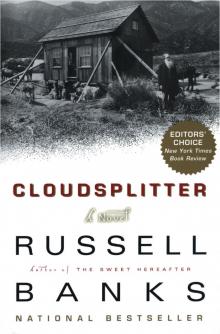

Author: Russell Banks
Category: Literature
Published: 1998
Series:
View: 380
Read OnlineA triumph of the imagination and a masterpiece of modern storytelling, Cloudsplitter is narrated by the enigmatic Owen Brown, last surviving son of America's most famous and still controversial political terrorist and martyr, John Brown. Deeply researched, brilliantly plotted, and peopled with a cast of unforgettable characters both historical and wholly invented, Cloudsplitter is dazzling in its re-creation of the political and social landscape of our history during the years before the Civil War, when slavery was tearing the country apart. But within this broader scope, Russell Banks has given us a riveting, suspenseful, heartbreaking narrative filled with intimate scenes of domestic life, of violence and action in battle, of romance and familial life and death that make the reader feel in astonishing ways what it is like to be alive in that time.Amazon.com ReviewThe cover of Russell Banks's mountain-sized novel Cloudsplitter features an actual photo of Owen Brown, the son of John Brown--the hero of "The Battle Hymn of the Republic" whose terrorist band murdered proponents of slavery in Kansas and attacked Harpers Ferry, Virginia, in 1859 on what he considered direct orders from God, helping spark the Civil War. A deeply researched but fictionalized Owen narrates this remarkably realistic and ambitious novel by the already distinguished author of The Sweet Hereafter. Owen is an atheist, but he is as haunted and dominated by his father, John Brown, as John was haunted by an angry God who demanded human sacrifice to stop the abomination of slavery. Cloudsplitter takes you along on John Brown's journey--as period-perfect as that of the Civil War deserter in Cold Mountain--from Brown's cabin facing the great Adirondack mountain (called "the Cloudsplitter" by the Indians) amid an abolitionist settlement the blacks there call "Timbuctoo," to the various perilous stops of the Underground Railroad spiriting slaves out of the South, and finally to the killings in Bloody Kansas and the Harpers Ferry revolt. We meet some great names--Frederick Douglass, Ralph Waldo Emerson, and a (fictional) lover of Nathaniel Hawthorne--but the vast book keeps a tight focus on the aged Owen's obsessive recollections of his pa's crusade and the emotional shackles John clamped on his own family. Banks, a white author, has tackled the topic of race as impressively as Toni Morrison in novels such as Continental Drift. What makes Cloudsplitter a departure for him is its style and scope. He is noted as an exceptionally thorough chronicler of America today in rigorously detailed realist fiction (he championed Snow Falling on Cedars). Banks spent half a decade researching Cloudsplitter, and he renounces the conventional magic of his poetical prose style for a voice steeped in the King James Bible and the stately cadences of 19th-century political rhetoric. The tone is closer to Ken Burns's tragic, elegiac The Civil War than to the recent crazy-quilt modernist novel about John Brown, Raising Holy Hell. A fan of Banks's more cut-to-the-chase, Hollywood-hot modern style may get impatient, but such readers can turn to, say, Gore Vidal's recently reissued Lincoln, which peeks into the Great Emancipator's head with a modern's cynical wit. Banks's narrator is poetical and witty at times--Owen notes, "The outrage felt by whites [over slavery] was mostly spent on stoking their own righteousness and warming themselves before its fire." Yet in the main, Banks writes in the "elaborately plainspoken" manner of the Browns, restricting himself to a sober style dictated by the historical subject. Besides, John Brown's head resembles the stone tablets of Moses. You do not penetrate him, and you can't declare him mad or sane, good or evil. You read, struggling to locate the words emanating from some strange place between history, heaven, and hell. From Library JournalAt first glance, aside from the setting, this massive novelized life of Abolitionist John Brown, told from the viewpoint of one of his sons, has nothing in common with Banks's book of outlaw excess, Rule of the Bone (HarperCollins, 1995). Yet both deal with single-mindedness, rebellion, and codes?except that Brown's versions of these are more honorable (he would have agreed with Dylan that "to live outside the law you must be honest"). This book has all the stark beauty of the Adirondacks setting and of Brown's religion, and the elderly, reclusive narrator's coming to terms with himself and his father is an achievement in its own right. Besides, like the works of Thomas Mallon and Thomas Gifford, this is not just a fine novel (and a wonderfully structured one at that) but a way to participate in history. Recommended, without hyperbole, for all collections.-?Robert E. Brown, Onondaga Cty. P.L., Oswego, N.Y.Copyright 1998 Reed Business Information, Inc.
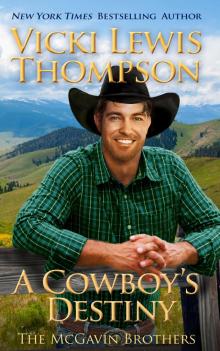 A Cowboy’s Destiny: The McGavin Brothers
A Cowboy’s Destiny: The McGavin Brothers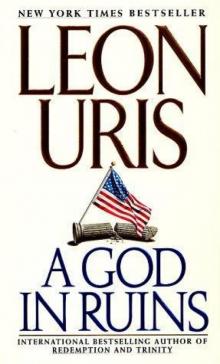 A God in Ruins
A God in Ruins The Best Science Fiction Stories of H G Wells
The Best Science Fiction Stories of H G Wells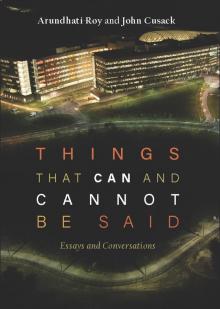 Things That Can and Cannot Be Said: Essays and Conversations
Things That Can and Cannot Be Said: Essays and Conversations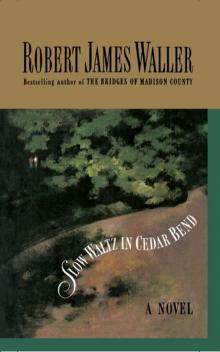 Slow Waltz in Cedar Bend
Slow Waltz in Cedar Bend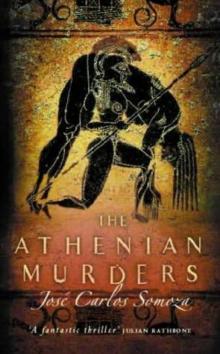 The Athenian Murders
The Athenian Murders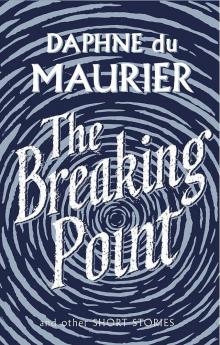 The Breaking Point: Short Stories
The Breaking Point: Short Stories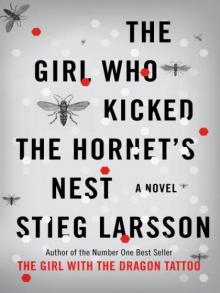 The Girl Who Kicked the Hornet's Nest
The Girl Who Kicked the Hornet's Nest